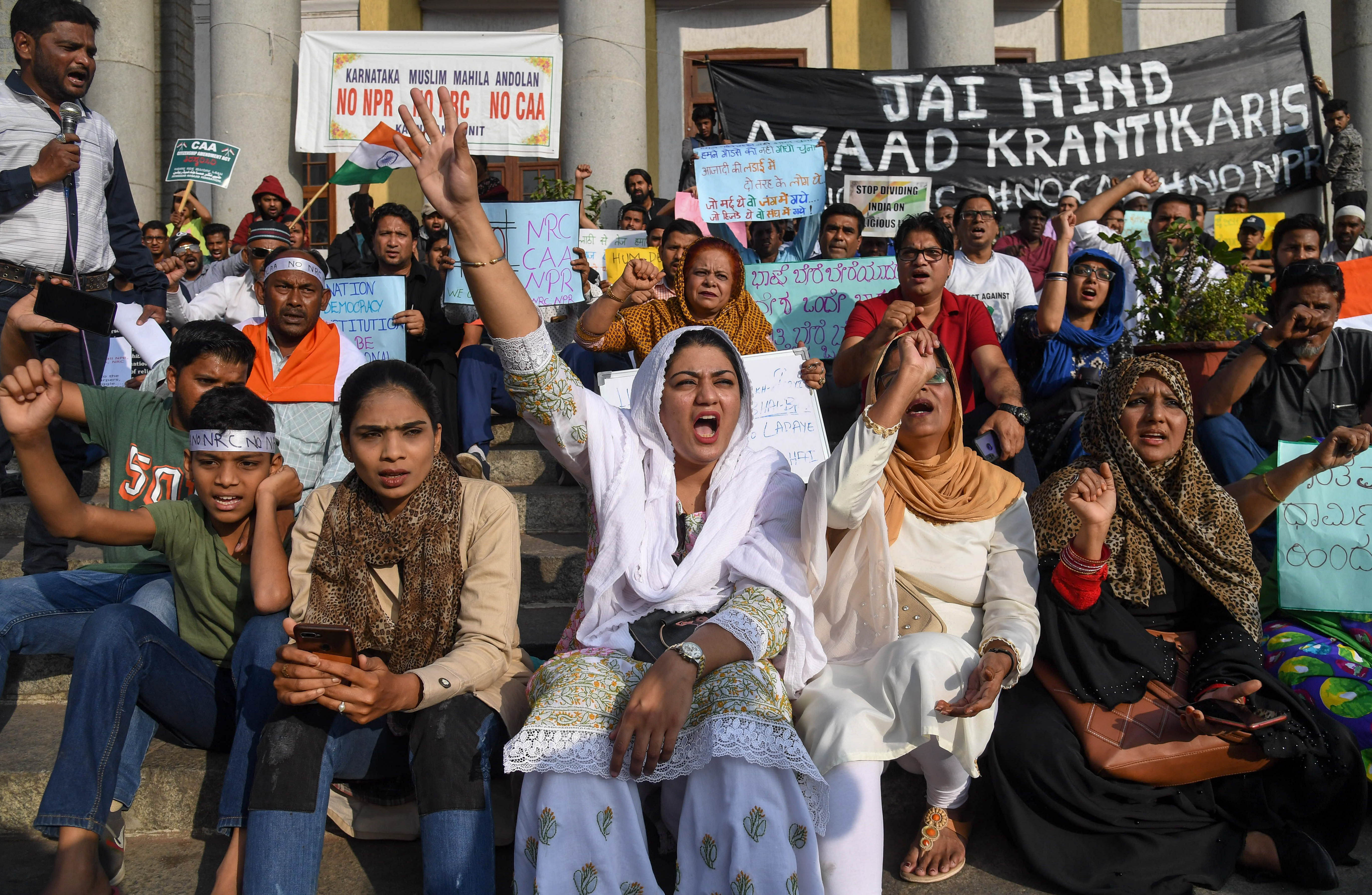
When 63-year-old Tahira Begum stood with a mic at Town Hall, Bengaluru, on January 9, no one was prepared for what was to follow. She began by explaining she may not be as well-read as the others at the protest, and not know English, but still, she wanted to say a few things.
The Kannada-speaking lawyers and activists sitting on the steps clapped and cheered loudly even before she had finished her last sentence. As if we were all part of one large organism, we inched forward to listen to Tahira.
It’s interesting to ask ourselves if in the English-speaking imagination of ‘protest’ and ‘public’ we see and acknowledge women like Tahira. If we did, then she wouldn’t have thought it necessary to start her address that way. This could be the beginning of an answer to those of us who have always questioned Bangalore’s apathy and its lack of activism.
An English-educated eye is sometimes only trained to locate political incorrectness and criticise it, it is perhaps yet to learn how to recognise protests in other languages, other spaces, or indeed in other forms. So, when it encounters women like Tahira, it wouldn’t know what to do except to say ‘how charming’ three times.
Wondering why the government wasn’t paying attention to the growing unemployment and dipping economy (Nam makklu kelsa ilde oddadta idare: Our children are struggling without jobs), Tahira asked “Kya yeh NRC CAA ABC? Kya yeh alphabets ke saath khel re so inhe?” (What is all this NRC CAA ABC, what alphabet game are they playing with us?)
Tahira switched comfortably from Urdu to Kannada to Urdu again, and if this isn’t the only truly remarkable quality of a citizen, I don’t know what is. The word ‘citizenship’ comes from the Latin word for city because “people identified themselves as belonging to cities more than countries.” And what can be more Bengaluru than a woman playing with two languages at a Town Hall protest? What can be more Indian than knowing, and allowing, two languages to live in your body? That same day, singers M D Pallavi and Bindhumalini Narayanaswamy performed Faiz Ahmad Faiz’s ‘Hum Dekhenge’ in Kannada — ‘Naavu Nodona.’
After a month of nation-wide protests against NRC and CAA and the attack on JNU students, we are now confronting the intrinsic truth of our times, which is that we are living in a moment of translation. It’s a strange kind of translation where the original and the translation are stubbornly merged. This translation is happening quite fiercely from protest to play, from art to protest, from Hindi to Kannada, from Kannada to Urdu.
Art has the capacity to contain and tolerate more than just one language, one belief at a time, something the state can never do, and in these recent protests, what we are seeing is a kind of imitation — protest is mimicking art and art is becoming protest. Students are assembling at Town Hall immediately after college to make posters, “What is citizen in Kannada?” a young woman holding a sketch pen is asking another, young children are hugging national flags, families of three, sometimes four, riding on two-wheelers are making room for the national flag.
This is perhaps one of the many reasons our government is so intolerant of dissenting voices: it doesn’t know whom to attack but it still does. There is something dangerously ironic when members of political parties who don’t want students to engage in politics or activism barge into college campuses and disfigure its walls (either by forcibly putting up a poster or erasing something) — they not only make these spaces political, but they also provide unwitting testimony for why students should engage.
Art, when it becomes protest, is unimaginably irritating for people in power. The other side of it is what happens to those who are ‘following orders’ — like the police constables surrounding Town Hall for instance (one protestor wondered: are they here for us or them?). But as many noticed, after Tahira made her NRC- CAA-ABC comment, one of the constables giggled into his right hand before regaining composure.
Kannada writer Siddalingaiah’s words come to mind: “My poetry is protest, my autobiography humour.”
(The writer teaches at St Joseph’s College, Bengaluru)